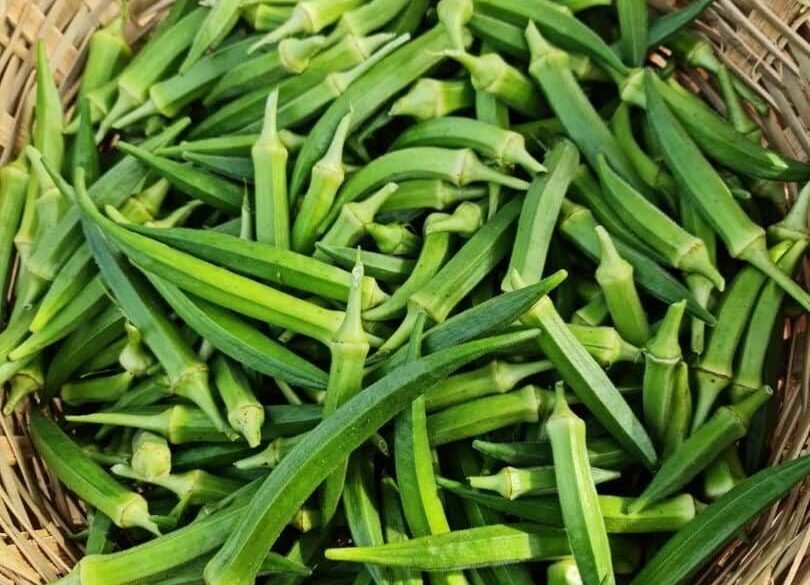Introduction to Organic Farming
Organic farming is a holistic agricultural practice that emphasizes the use of natural processes and materials to cultivate crops and raise livestock. Unlike conventional farming, which often relies on synthetic chemicals, pesticides, and genetically modified organisms (GMOs), organic farming strives to maintain ecological balance and biodiversity. By avoiding these synthetic inputs, organic farming promotes healthier soil, cleaner water, and a more sustainable ecosystem.
The principles of organic farming are rooted in practices that enhance the natural fertility of the soil. Techniques such as crop rotation, composting, and the use of green manure contribute to improved soil structure and nutrient content. Crop rotation, for instance, involves alternating the types of crops grown on a particular piece of land to prevent soil depletion and reduce pest populations. Composting recycles organic waste into valuable fertilizers that enrich the soil, while green manure—cover crops that are plowed back into the soil—adds organic matter and nutrients, fostering a more fertile growing environment.
One of the significant environmental benefits of organic farming is the enhancement of biodiversity. By creating habitats for various species of plants, insects, and animals, organic farms contribute to a more resilient agricultural ecosystem. This biodiversity not only supports natural pest control but also ensures pollination and other essential ecological functions. Additionally, organic farming practices help conserve water by improving soil structure and increasing its ability to retain moisture, thus reducing the need for irrigation.
For consumers, the health benefits of organic produce are substantial. Organic foods are free from synthetic pesticides and GMOs, reducing the risk of exposure to harmful chemicals. Studies have shown that organic fruits and vegetables often contain higher levels of certain nutrients, including antioxidants, which can contribute to better overall health. Moreover, organic farming supports local economies by offering farmers premiums for their crops and creating jobs within the community. It also promotes the safety and well-being of farm workers by reducing their exposure to hazardous chemicals.
In practice, organic farming employs natural pest control methods, such as introducing beneficial insects and using plant-based repellents, to manage pests. These methods minimize harm to the environment and human health while maintaining crop productivity. Through these practices, organic farming not only produces healthier food but also nurtures a more sustainable and resilient agricultural system.
Greenhouse Vegetable Growing: Techniques and Advantages
Greenhouse vegetable growing is a sophisticated method that involves cultivating plants within a controlled environment to optimize growth and yield. This practice typically utilizes structures made from materials like glass, plastic, or high tunnels, each offering unique benefits. Glass greenhouses provide excellent insulation and light transmission, while plastic greenhouses are cost-effective and versatile. High tunnels, or hoop houses, are often used for season extension and protection against adverse weather.
The controlled environment within a greenhouse is pivotal to its success. By meticulously managing temperature, humidity, light, and ventilation, growers can create optimal conditions for plant development. For instance, maintaining a stable temperature range helps prevent stress on plants, while appropriate humidity levels reduce the risk of fungal diseases. Light intensity and duration can be adjusted to match the specific needs of different vegetable crops, enhancing photosynthesis and growth. Adequate ventilation is essential to prevent overheating and ensure a consistent supply of carbon dioxide.
One of the primary advantages of greenhouse vegetable growing is the extended growing season. Growers can produce crops year-round, regardless of external weather conditions, leading to a more consistent supply of fresh vegetables. Additionally, greenhouses offer protection from pests and diseases, reducing the need for chemical interventions. This not only promotes healthier plants but also contributes to sustainability by minimizing chemical runoff and soil degradation.
Greenhouses are known for their water efficiency. Drip irrigation systems can be employed to deliver precise amounts of water directly to the plant roots, reducing wastage. Furthermore, the enclosed environment limits water evaporation, ensuring that plants receive adequate hydration. The reduced need for chemical inputs in a greenhouse setting also supports sustainable agriculture practices, making it an environmentally friendly choice.
Effective greenhouse management is crucial for successful vegetable production. Soil preparation, including the use of organic matter and proper pH levels, sets the foundation for healthy plant growth. Developing a planting schedule that aligns with the specific requirements of the crops can maximize yields. Integrated Pest Management (IPM) strategies, such as introducing beneficial insects and using organic pest control methods, help maintain a balanced ecosystem within the greenhouse.
By understanding and applying these techniques, growers can harness the full potential of greenhouse vegetable growing, leading to sustainable and productive agricultural practices.



